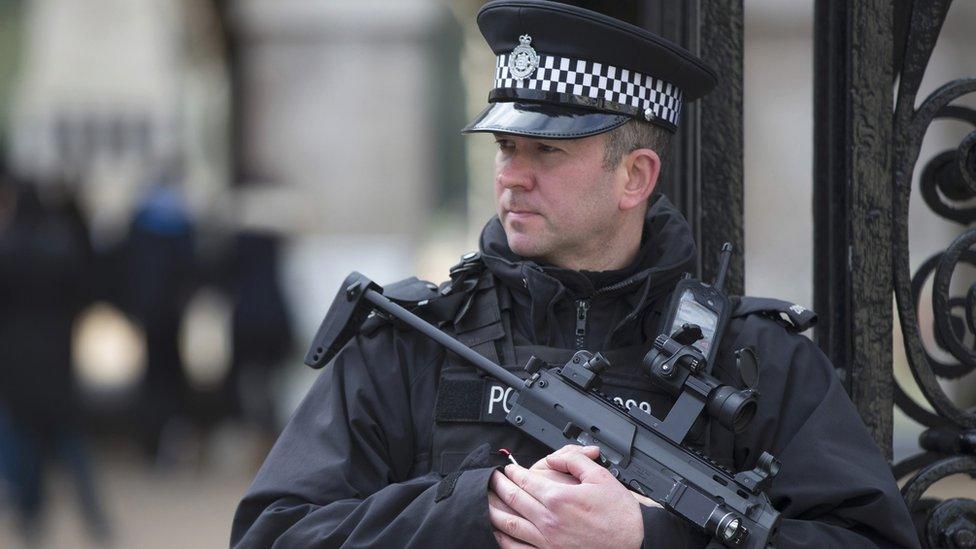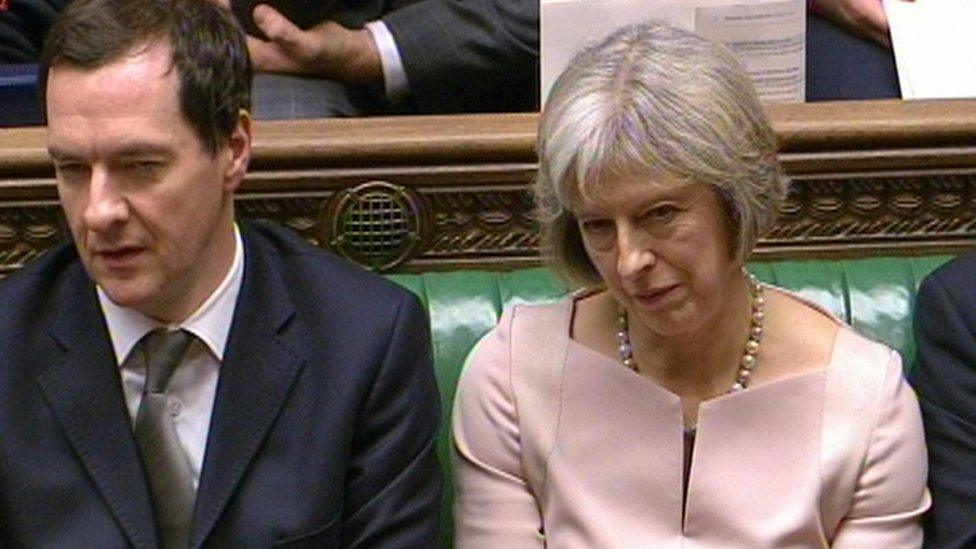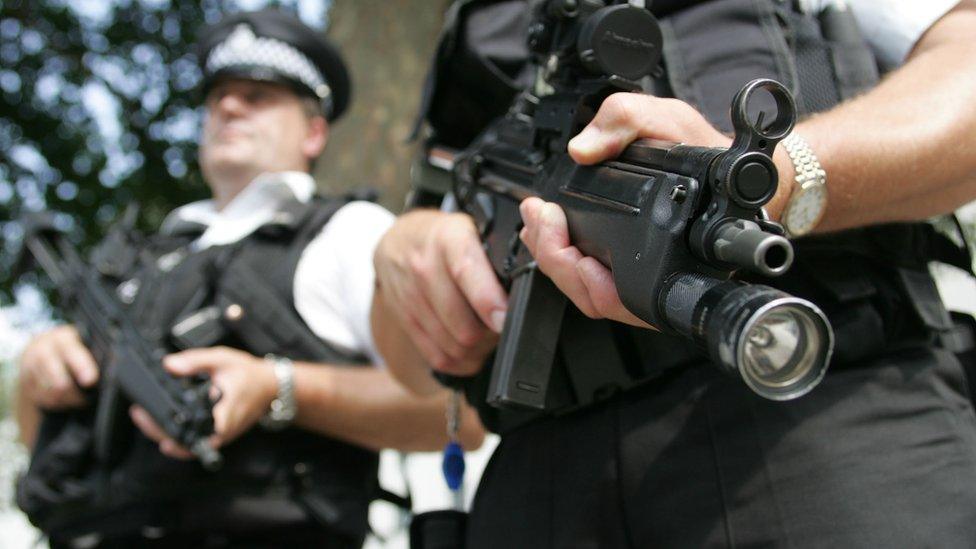Paris and the police
- Published

It's not entirely surprising that days before a big statement from the Treasury, concerns about the impact of the spending squeeze are made plain.
And it's no secret that the Home Office budget is one of the departments in Whitehall that is not protected from the overall cuts.
Following the Paris attacks, political concern over policing numbers has become acute.
A document, prepared at the request of the government's emergency committee in the immediate aftermath of the attacks, spells out some of the potential consequences of further cuts to the police budgets.
And for the Home Office, and the chancellor preparing his set piece statement for next Wednesday, it makes awkward reading.
We've seen key paragraphs of a restricted document prepared this week titled, "Implications of the Paris Attack for UK Police Preparedness".
The document suggests that further cuts to police budgets would have very serious implications for the authorities' ability to respond to multiple terrorist incidents because of the reduction in police numbers.
The document cites concerns over "surge capacity" - the need to mobilise large numbers of officers and resources in the event of a serious attack, warning that it will "reduce very significantly across the country unless a different funding settlement is found".
These concerns, outlined in a letter to the home secretary, copied to the Treasury, Number 10 and the security services, are on top of existing worries about reductions in neighbourhood policing.

George Osborne and Theresa May have met to try to reach a deal about Home Office funding
The document, dated 15 November, says: "It would be remiss of me not to highlight the impact further reductions in police force numbers would have on our ability to manage terrorist incidents of this magnitude, particularly if spread simultaneously across a number of geographical locations.
"Police forces across England and Wales have already seen a reduction of 40,000 officers and further losses will severely impact our surge capacity, which is heavily geared and will reduce very significantly across the country unless a different funding settlement is found.
"A Met view is that a 5-10% CSR cash reduction should keep officer reductions at 2,000 or fewer which will be manageable. Other forces' positions vary, but the overarching concerns are the same. These considerations are of course in addition to the need to sustain neighbourhood policing to maintain local trust and intelligence flows."
Expectation in Westminster is that the cuts to the police budget may be more than 20%, more than double what this official document suggests is viable to keep numbers at the level required in the event of an attack. The concerns outlined in the document go beyond the specific budget allocated to counter terrorism.
The chancellor and the home secretary met today to try to finalise the spending plans for the Home Office, their second such meeting this week.
The government has committed to protecting the counter terrorism budget. David Cameron said at Prime Minister's Questions this week: "We rightly protected counter terrorism in the last Parliament and we will protect it again in this parliament."
But it's clear that the concerns go far wider than the specific budget allocated to fight terrorism. And, as in so many regards, the Paris attacks are having an impact on politics here too.
- Published20 November 2015
